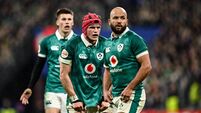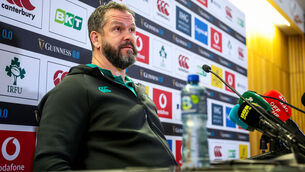Destined for the Grand Slam
In the past, people have questioned Ronan O’Gara’s bottle under pressure. Never again. With less than 10 minutes on the field, he won the game for Ireland. It was a tremendous sign of the bravery within the Ireland team that they were able to get themselves into a scoring position after Stephen Jones had secured what he presumed was a match-winning drop goal.
Even after O’Gara’s intervention, Wales could have won the match. However, teams which are low on confidence forget how to win matches. Ireland have forgotten how to lose. On Saturday they won a game which in truth could have gone either way.















